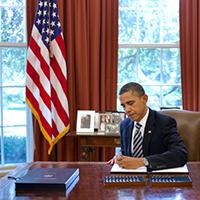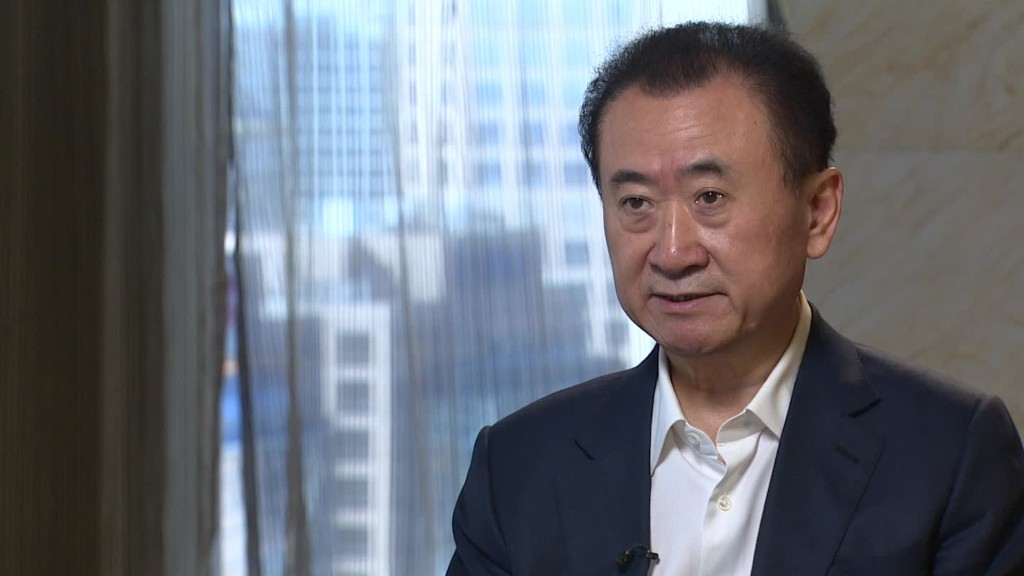|
Robotics
is an increasingly sophisticated discipline, but for the sake of
humanity (and their potential profits), some major names in innovation
are doing their best to prevent AI from totally dominating us.
 Dear Wall Street Daily Reader,
Have
no fear: When the robots make their move against humanity, companies
like Amazon, DeepMind/Google, Facebook, IBM, and Microsoft will have our
backs.
Well, that's what the tech behemoths would have us believe.
As Will Knight notes for the MIT Technology Review:
"That such fierce rivals would come together in this way shows how
important the companies feel it is to head off public concern and
speculation over the potential impacts of AI."
I
can't help but think of the pact that united Hitler and Stalin, just
before Germany and the Soviet Union engaged in the deadliest one-on-one
conflict in human history.
Look,
none of Bezos, Brin, Zuckerberg, or any of the other mucky mucks in
charge of those dominant enterprises is either "Hitlerian" or
"Stalinesque." Those two creatures are extremely unique, if not in world
history, then at least in the context of the 20th century.
But
the fact that these latter-day tech masters would form the Partnership
on Artificial Intelligence to Benefit People and Society is a pretty
clear indication of the weight of the matters at hand.
The division of Europe was a big deal.
And so is the future of artificial intelligence.
Of
course the real, legitimate concern about computers, robotics, and AI
is more prosaic, summed up by Erik Brynjolfsson's and Andrew McAfee's
contention that the slowdown in jobs growth during the last decade and a
half is the result of automation's impact on manufacturing, clerical,
and retail employment.
The future, as David Rotman notes in a June 12, 2013, piece for MIT Technology Review, will see AI move into more sophisticated disciplines such as law, financial services, education, and medicine.
In the introduction to their 2012 e-book Race Against the Machine, Brynjolfsson and McAfee, both of MIT's Center for Digital Business, write:
When
people talk about jobs in America today, they talk about cyclicality,
outsourcing and off-shoring, taxes and regulation, and the wisdom and
efficacy of different kinds of stimulus. We don't doubt the importance
of all these factors. The economy is a complex, multifaceted entity.
But
there has been relatively little talk about role of acceleration of
technology. It may seem paradoxical that faster progress can hurt wages
and jobs for millions of people, but we argue that's what's been
happening. As we'll show, computers are now doing many things that used
to be the domain of people only. The pace and scale of this encroachment
into human skills is relatively recent and has profound economic
implications. Perhaps the most important of these is that while digital
progress grows the overall economic pie, it can do so while leaving some
people, or even a lot of them, worse off.
But
the authors conclude their work by describing the positive net impact
digital technology will have on humanity: "[W]hen we look at the full
impact of computers and networks, now and in the future, we are very
optimistic indeed. These tools are greatly improving our world and our
lives, and will continue to do so."
Amazon, DeepMind/Google, Facebook, IBM, and Microsoft are all making a lot of progress with AI.
IBM,
for example, has taken a giant step with a processor designed based on
the architecture of the human brain, its TrueNorth chip.
In a paper published in the September 9, 2016, issue of Proceedings of the National Academy of Sciences,
IBM researchers demonstrated that TrueNorth is a viable "neuromorphic
network" capable of incorporating the current deep-learning standard
"convolutional neural networks" to establish a new state of the art.
As Dharmendra Modha, chief scientist for brain-inspired computing at IBM Research-Almaden, told IEEE Spectrum,
"The new milestone provides a palpable proof of concept that the
efficiency of brain-inspired computing can be merged with the
effectiveness of deep learning, paving the path towards a new generation
of chips and algorithms with even greater efficiency and
effectiveness."
In
addition to enabling even further automation of hitherto human
functions in the economy — industrial robots are on the march! — AI will
soon permeate our lives.
Uber
is already testing a fleet of self-driving cars in Pittsburgh. The
current state of the art relies on sensors, radar, cameras, and data
communication systems — with humans in the driver's seat.
Apple and Google, among others, are at work on fully autonomous vehicles that will run on AI.
The aerospace and defense industry has been making use of unmanned aerial vehicles for years now. Soon we'll see AI fighter pilots. UPS and Amazon are in the early stages of drone-delivery warfare.
"Robo-advisers"
have entered the financial services industry. The present and future of
financial technology is rooted in AI and its ability to enable
electronic and mobile banking, simplification of payment processes,
acceleration of trade settlement, more efficient security and fraud
protection, as well as credit verification.
AI
is going to be a key driver of the growth of the Internet of Things due
to its ability to process enormous amounts of data. AI-based analytics
will be a big growth market, with applications including web search,
marketing, digital security, and financial services.
Meanwhile,
InTouch Health's "telehealth" machine connects patients to specialists
for acute (emergency and intensive) care, post-acute (skilled nursing,
home health) care, and community care. A mobile robot streams a doctor's
face and voice from hundreds or even thousands of miles away.
And
a Xenex robot uses ultraviolet light to kill up to 70% of bacteria in
hospital rooms in about 12 minutes, reducing the incidence of hospital
acquired infections (HAI). It's billed as "the world's only Full
Spectrum UV Germ-Zapping Robot."
We've been worried about the potential of machines to destroy us since at least 1872, when Samuel Butler published Erewhon; or, Over the Range. Wrote Butler, nearly 150 years ago:
There
is no security against the ultimate development of mechanical
consciousness, in the fact of machines possessing little consciousness
now. A jellyfish has not much consciousness. Reflect upon the
extraordinary advance which machines have made during the last few
hundred years, and note how slowly the animal and vegetable kingdoms are
advancing. The more highly organized machines are creatures not so much
of yesterday, as of the last five minutes, so to speak, in comparison
with past time.
I'll
take lukewarm comfort in its statement that the Partnership on
Artificial Intelligence to Benefit People and Society "will work to
advance public understanding of artificial intelligence technologies
(AI) and formulate best practices on the challenges and opportunities
within the field."
The
incalculable business opportunity before them may indeed have been the
ultimate motivator driving the Partnership on Artificial Intelligence's
founders — they want to set the tone rather than allow government to
step in on behalf of fearful constituents.
And
it's tough to make predictions, especially about the future. So I won't
say there will never be a Skynet-driven "rise of the machines."
But the real threats are less dramatic.
It's the economic displacement.
It's
the possibility that "a machine-learning system designed to identify
disease that is fed biased data might discriminate against certain
people," as Will Knight notes.
These are legitimate, real-world concerns.
|
 University of Melbourne
University of Melbourne By
By  Worse
case scenario: When you awaken to face another new day in tumultuous
times this Saturday, the Information Highway as we knew it will no
longer be at your service.
Worse
case scenario: When you awaken to face another new day in tumultuous
times this Saturday, the Information Highway as we knew it will no
longer be at your service.

 Dear Wall Street Daily Reader,
Dear Wall Street Daily Reader,

 There’s
not even the slightest shadow of a doubt about to whom President Barack
Obama is handing-off the Internet at midnight tonight if the four
Republican attorneys general making an 11th-hour bid to block him do not
succeed in the lawsuit they filed yesterday.
There’s
not even the slightest shadow of a doubt about to whom President Barack
Obama is handing-off the Internet at midnight tonight if the four
Republican attorneys general making an 11th-hour bid to block him do not
succeed in the lawsuit they filed yesterday.








